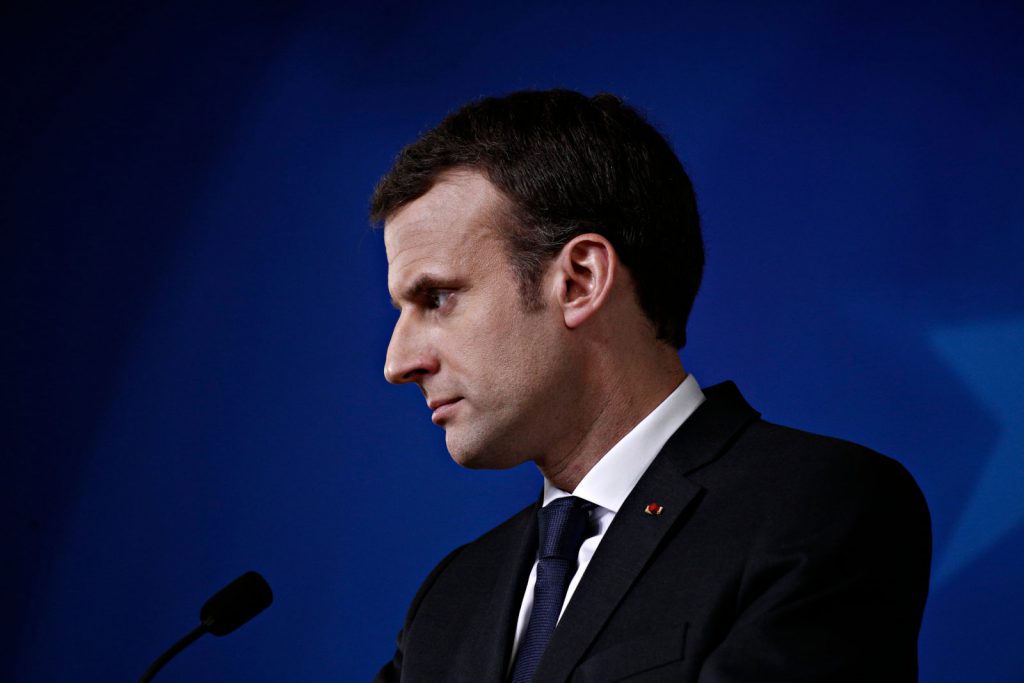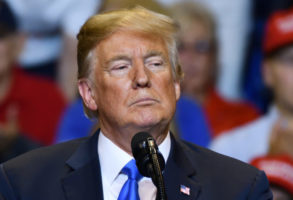
Published April 26, 2018
Trade may look like an issue where Donald Trump and his recent French guest, Emmanuel Macron, can never see eye to eye. The French president pointedly took swipes at his host during his address to a joint session of Congress Wednesday, denouncing trade wars and saying that trade imbalances can only be solved through multilateral means — exactly the opposite of what Trump habitually says about trade.
But the picture of Macron as a ga-ga globalist, and of Trump as a protectionist ideologue, is too simplistic. Indeed, for all their very real differences, they also share priorities, which offers a way for them to work together.
It is as unusual for France that its president be an outspoken free trader as it is for the United States that its president be a fierce trade critic. French presidential cycles feature a time-honored tradition where candidates vow to prevent factory closures to prevent jobs moving overseas. Macron departed from the script and took the political risk of saying he wouldn’t bail out failing businesses; it paid off since even those who disagreed had to admit that he had been honest.
Meanwhile, Trump has lambasted trade agreements and threatened steel tariffs that have Europe horrified. A top item on Macron’s agenda is lobbying for an EU exemption from the tariffs. Trump keeps complaining about U.S. trade deficits and one of the biggest such deficits is with Germany.
Still, while Trump gets angry about most of America’s trade relationships, there is one that he sees as a threat above all others: China. He stunned the world by asking his economic adviser Larry Kudlow — a free-trader’s free-trader — to review the Trans-Pacific Partnership trade pact with a view to potentially re-entering a deal he constantly excoriated. One motivation was probably the realization that TPP was meant to counter China’s questionable trade practices by creating an Asian trading bloc that would exclude it. Trump the dealmaker has shown himself to be boundlessly flexible, and the idea of trade alliances — possibly with the EU — to counter China should have obvious intuitive appeal to him.
Meanwhile, Macron’s views on trade are more nuanced than they appear. In multiple speeches and interviews, he has shown awareness of how economic disruptions from trade, real and imagined, have fed into Europe’s populist movements, which in turn threaten the idea of an open, prosperous Europe he seeks to defend. For Macron this is part of his deep-seated belief that the liberal-internationalist framework represented by institutions like the EU must demonstrate to skeptical, justifiably angry citizens that they care about them and can and will defend them from the worst excesses of globalization. Macron knows rhetoric isn’t enough; he will keep making the case for trade but also seek significant changes to existing trade regimes to make them fairer.
Macron’s trade agenda can actually seem quite Trumpish in many respects, both in tone and in its China focus. Within the EU, Macron has made specific demands that EU trade policy include robust “anti-dumping” measures, largely to screen Chinese investments, and reciprocity with the Chinese market in public procurement. On a state visit to China earlier this year, Macron smilingly talked up the two countries’ economic partnership — but he also brought his economy minister along to warn that France will not allow Chinese investors to “pillage our technology.” He has expanded the so-called Montebourg decree that requires prior government approval for foreign investment in sectors deemed strategic.
Macron clearly believes in multilateralism, and Trump clearly distrusts it. This difference makes sense given the gap in economic and political clout between their two countries. But it is largely a difference that about approach, not the end goal.
But both men clearly share the belief that Chinese trade practices are unfair and hurtful to their respective countries’ middle classes, and want to change the status quo. An agreement between the U.S. and the EU to put their trade differences aside and instead join efforts to pressure China to change at least some of its protectionist trade practices would enable both men to claim victory. It would also happen to be good policy.
Pascal-Emmanuel Gobry is a fellow at the Ethics and Public Policy Center.





